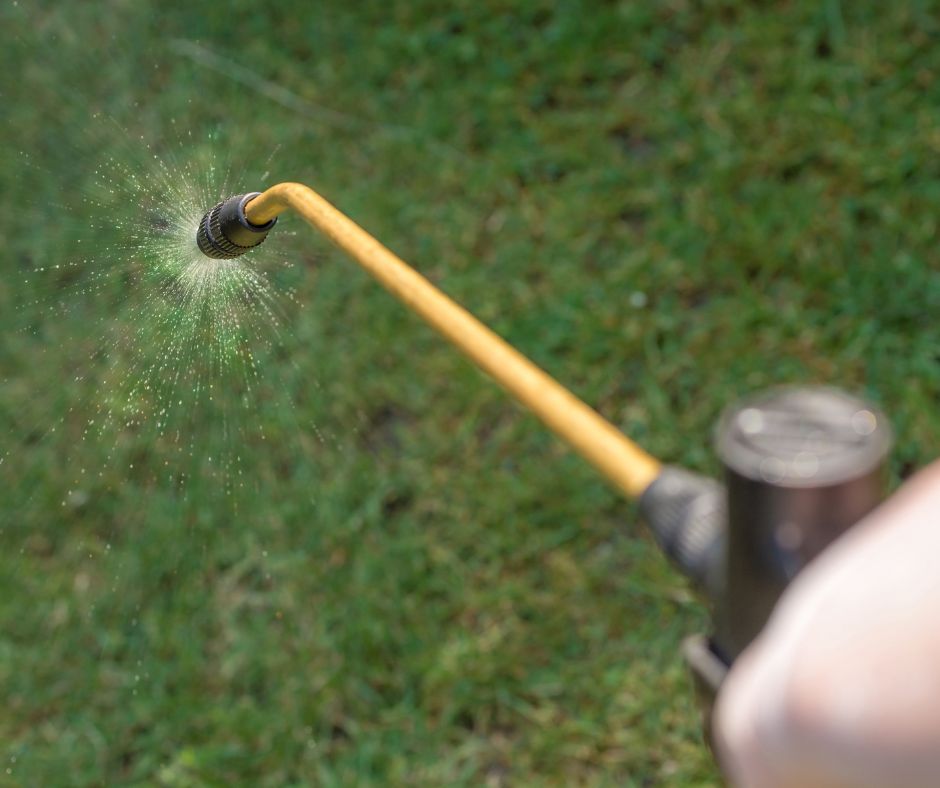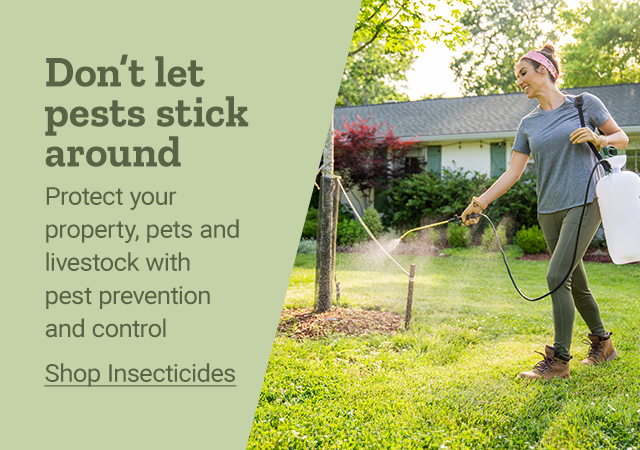Trusted Rodent Control Port Charlotte to Stop Damage to Your Property
Wiki Article
Discover the Importance of Bug Control in Preserving a Healthy Environment and Therapy Techniques

The Role of Insects in Ecological Communities
Pests, typically viewed only as nuisances, play a multifaceted duty in ecosystems that is crucial for preserving ecological equilibrium. They contribute dramatically to different environmental procedures, including pollination, vitamins and mineral cycling, and parasite control. For example, lots of insect varieties, such as bees and butterflies, are crucial pollinators for a wide variety of plants, which subsequently sustains biodiversity and food manufacturing.In addition, insects function as target for countless predators, producing a critical link in food webs. This connection makes certain the survival of numerous types and aids manage populaces within environments (Termite treatment Port Charlotte). Moreover, decomposer insects, such as specific beetles and fungis, are critical in breaking down raw material, thus improving soil and assisting in vitamins and mineral recycling.
Alternatively, while insects can be advantageous, their overpopulation or intrusion right into non-native atmospheres may disrupt these ecological features. This complexity emphasizes the value of recognizing insect dynamics, as efficient insect monitoring methods have to consider both their eco-friendly roles and possible influence on human activities. Balancing pest visibility while decreasing harm is necessary for protecting the stability of ecological communities and making certain agricultural performance.
Health Risks Connected With Pests
The presence of bugs in numerous environments prolongs past their eco-friendly roles, as they also present substantial wellness risks to humans and animals. Many parasites, consisting of insects, rodents, and parasites, are providers of diseases that can have severe health implications. As an example, rodents are known to transfer hantavirus and leptospirosis, both of which can cause serious respiratory system and renal problems, specifically.Bugs such as ticks and mosquitoes are infamous for spreading vector-borne diseases like malaria, dengue high temperature, and Lyme condition. These illnesses can lead to high morbidity and mortality prices, specifically in susceptible populaces. In addition, bugs like vermins and cockroaches can aggravate allergic reactions and asthma, contributing to respiratory problems in individuals, especially those with pre-existing problems.
In addition, the presence of pests can result in emotional anxiety and discomfort, impacting total well-being. Contamination of food and surfaces by insect droppings and stays can bring about foodborne health problems, highlighting the relevance of keeping hygienic conditions. Consequently, comprehending the health and wellness risks linked with insects is essential in recognizing the need of effective bug management methods to protect human and animal wellness.

Advantages of Efficient Parasite Control
Effective pest control is essential for maintaining a secure and healthy environment, as it regularly reduces the various risks connected with bug invasions. One of the primary benefits of efficient pest management is the decrease of carcinogen. Pests such as cockroaches, mosquitoes, and rats are vectors for conditions that can impact both people and animals. By managing these populaces, the possibility of condition transmission is significantly reduced.Furthermore, efficient insect control safeguards residential or commercial property and structures from damages. Several bugs, like termites and carpenter ants, can cause substantial architectural damages that might need expensive repair services. By proactively handling these property owners, organizations and invasions can protect their financial investments.
Another substantial advantage is the renovation of total lifestyle. A pest-free atmosphere adds to psychological well-being and decreases anxiety related to problems. Moreover, reliable insect control promotes a more secure atmosphere for kids and family pets, making sure that homes continue to be sanctuaries totally free from disease-causing microorganisms and dangerous chemicals.
Usual Pest Control Methods

In the realm of pest monitoring, different strategies are utilized to combat problems efficiently. These techniques can be generally classified right into three main approaches: cultural, mechanical, and chemical controls.
Cultural control includes changing practices to minimize parasite facility, reproduction, and survival. This might include plant turning, correct hygiene, and environment adjustment, which jointly develop an environment much less conducive to pest spreading.
Mechanical control employs physical techniques to get rid of bugs (Termite treatment Port Charlotte). Techniques such as obstacles, vacuums, and traps are typically made use of to straight get rid of parasites from an area. This approach is particularly efficient for managing rodents and bugs without using unsafe chemicals
Chemical control entails the application of chemicals to manage insects. These compounds can be classified into herbicides, pesticides, and fungicides, each targeting particular kinds of bugs. It is crucial to use these chemicals carefully, adhering to safety standards and guidelines to minimize possible injury to non-target varieties and the atmosphere.
Each parasite control technique has its constraints and advantages, and commonly, an incorporated approach combining multiple methods produces the most effective results in keeping a pest-free atmosphere.
Lasting Bug Administration Practices
Lasting parasite management techniques encompass a series of methods made to minimize environmental influence while properly managing bug populaces. These methods focus on the usage of eco-friendly techniques over chemical pesticides, thus minimizing the threat of injury to non-target varieties, consisting of useful pests, wild animals, and human beings.Integrated Insect Monitoring (IPM) is a foundation of sustainable techniques, combining organic, cultural, mechanical, and chemical strategies to handle pests. Biological control includes presenting natural predators or parasites to reduce insect populations. Cultural practices, such as plant rotation and polyculture, interfere with pest life process and improve ecosystem durability.
Mechanical techniques, such as obstacles or traps, can effectively protect against parasite access without chemical intervention. Additionally, preserving healthy ecosystems with correct soil monitoring, plant health, and biodiversity can naturally minimize parasite concerns.
Education and learning and recognition are essential elements, encouraging individuals and areas to acknowledge pest dangers early and carry out safety nets. Termite treatment Port Charlotte. By cultivating an alternative strategy that balances parasite control with ecological honesty, lasting bug monitoring practices not just shield structures and plants yet additionally add to a healthier environment for future generations
Conclusion

Recognizing the health risks associated with pests is crucial in identifying the requirement of efficient pest management strategies to safeguard human and animal health.
Effective insect control is necessary for maintaining a risk-free and healthy setting, as it continually alleviates the various dangers associated with bug problems.Integrated Bug Monitoring (IPM) is a cornerstone of sustainable methods, incorporating organic, cultural, mechanical, and chemical tactics to manage pests. By comprehending the function of pests, recognizing involved wellness risks, and employing varied treatment strategies, a lasting technique to pest administration can be achieved. Integrated Insect Administration (IPM) stresses a holistic approach that mitigates harm to advantageous microorganisms while successfully regulating bug populations.
Report this wiki page